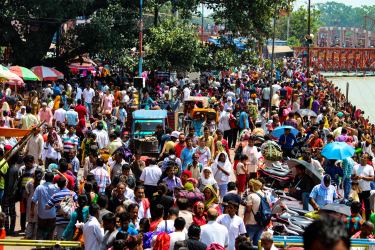
On 16 June, the Union Home Ministry issued an official notification for India’s 16th population census, marking the country’s first nationwide headcount since 2011.
The census will take place in two phases. The first phase, the House Listing Operation, will begin on 1 October 2026, followed by the Population Enumeration starting on 1 March 2027. Snow-bound regions, including Ladakh and parts of Jammu and Kashmir, Himachal Pradesh, and Uttarakhand, will begin earlier, with their reference date set for 1 October 2026.
“The reference date for the census shall be 00.00 hours of 1 March 2027, except for the Union territory of Ladakh and snow-bound non-synchronous areas,” the notification stated.
Approximately 34 lakh enumerators and supervisors, along with 1.3 lakh census functionaries, will be deployed for the exercise, all equipped with digital devices. Citizens will also have the option to self-enumerate from their homes using smartphones or digital platforms.
The first phase will collect household data, including assets, income, housing conditions, and access to amenities such as water, electricity, and toilets. The second phase will gather demographic, socio-economic, cultural, and other personal details of every individual living in each household.
For the first time since Independence, the census will include caste enumeration. Union Minister Ashwini Vaishnaw confirmed this inclusion in April, making it one of the most comprehensive censuses ever conducted in India.
On 15 June, Union Home Minister Amit Shah reviewed census preparations with Union Home Secretary and Registrar General Mritunjay Kumar Narayan, alongside senior officials. The ministry assured that “very stringent data security measures would be kept in place to ensure data security during collection, transmission, and storage.”
This announcement ends a 16-year gap between censuses, the longest delay in independent India’s history. The 2021 census was postponed due to the Covid-19 pandemic.
The census notification also facilitates the implementation of the Women’s Reservation Bill, which reserves one-third of Lok Sabha and state assembly seats for women. This bill can only take effect after a fresh census and subsequent delimitation exercise.
Delimitation, the process of redrawing electoral constituency boundaries based on population shifts, was frozen by the 42nd Constitutional Amendment in 1976 until 2000. The 84th Amendment Act of 2001 allowed limited boundary adjustments within states based on the 2001 Census, while keeping the total number of seats unchanged. This amendment extended the delimitation freeze until the first census after 2026.
The government refers to this as the 16th census since the exercise began, and the eighth since Independence. It will be the first census conducted entirely through digital means.




